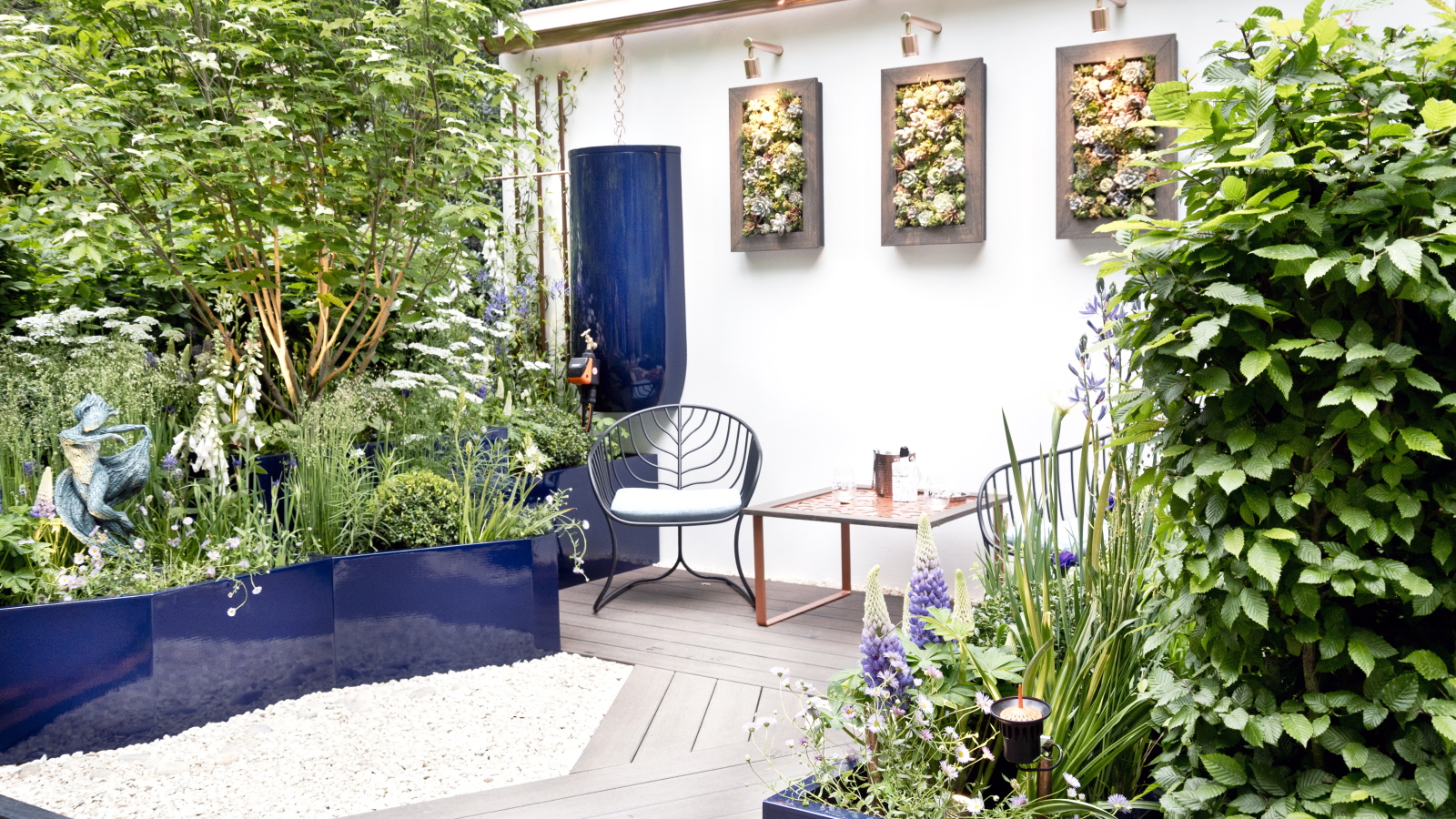
Some gardeners will try to avoid growing in west-facing positions where possible, due to its blazing hot afternoons in summer. This can feel even more intense on a balcony, where space is limited and heat reflects off building walls. However, the amount of sun a west-facing balcony gets and the fact it receives daylight for much longer than other directions can actually be a real opportunity for gardening.
If you've looked extensively at balcony garden ideas and continue to feel hopeless because your west-facing direction just seems too hot to sustain beautiful planting, it's time to think again. There are plenty of sun-loving plants that will grow well on your balcony and you can even create the feeling of a sunny patio in your urban garden.
Trying to decide what to do on your balcony can feel overwhelming, but it might be reassuring to know that it's possible to have a thriving garden in the sky in a west-facing position. Here are some tips and ideas from gardening experts to get you started.
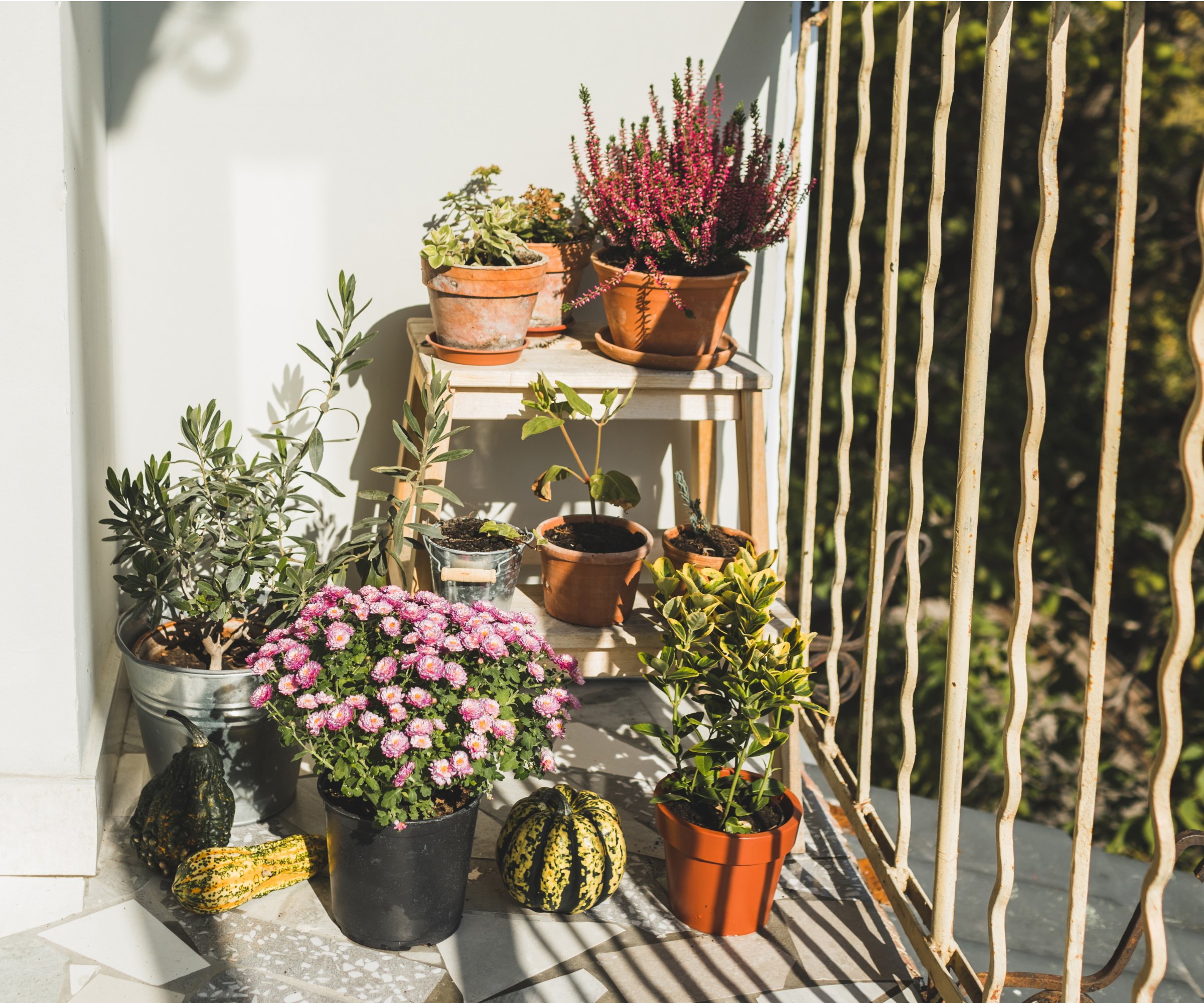
3 ways to garden on a west-facing balcony
What we classify as a garden is becoming increasingly flexible. From indoor gardens to window boxes and growing on your balcony, everyone is able to garden no matter the space they have available. The challenge of having a west-facing balcony, of course, is the cold winters and hot summer afternoons. Nevertheless, gardening experts say that it's still possible to have a thriving garden balcony in this position. Here are 3 ways to try gardening on a west-facing balcony.
1. Choose heat-tolerant plants
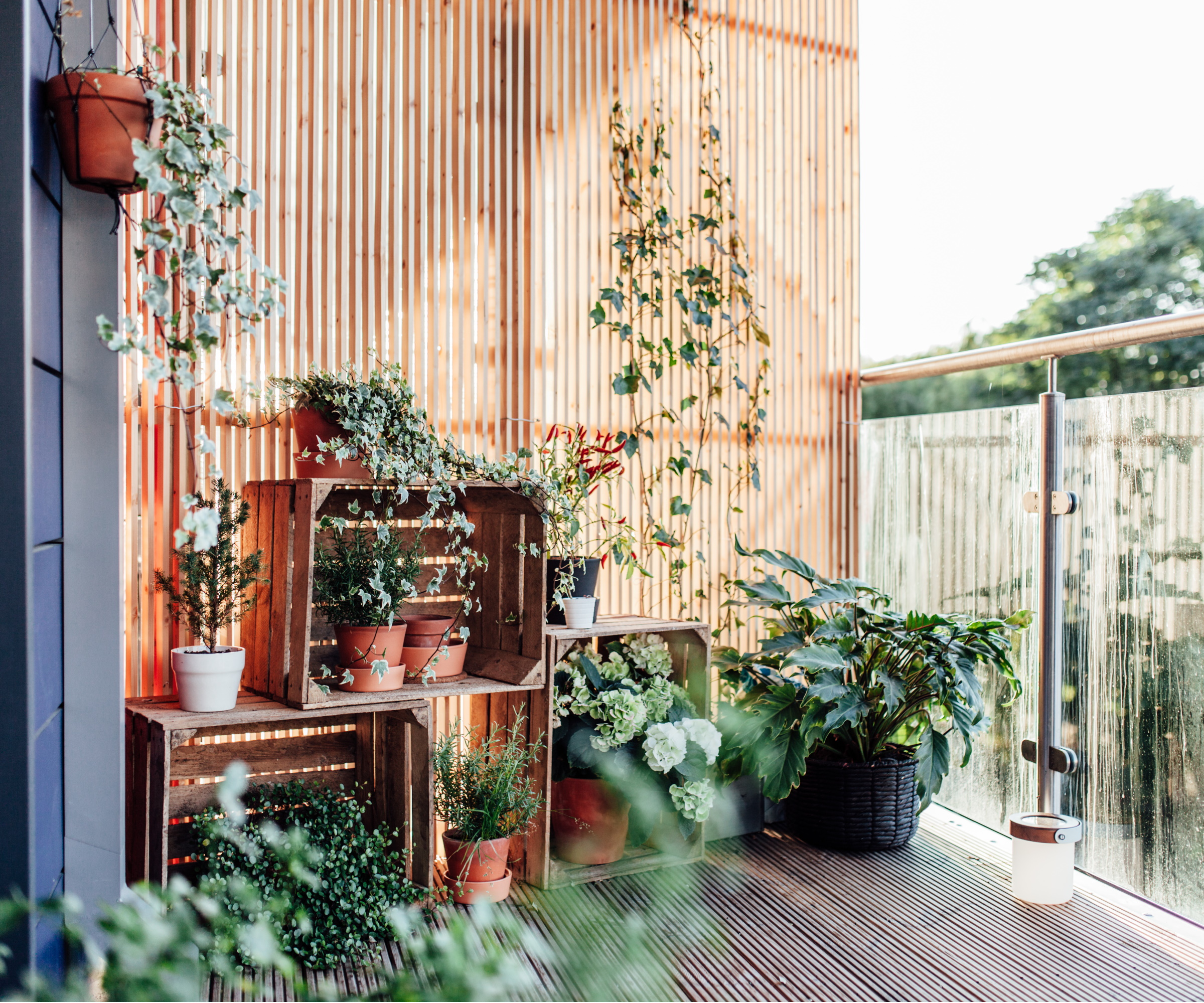
The sun rises from the east and sets in the west, meaning that a west-facing balcony will have the opposite lighting and temperature to east-facing balconies who have warm mornings and cool afternoons.
The problem here is that during summer, the hottest part of the day tends to be in the afternoon. This can leave your west-facing balcony feeling like a suntrap. While this can be lovely for catching a tan, you might also be concerned about things like leaf scorch and how much water you'll be using to keep your plants hydrated.
However, opting for heat and drought-tolerant plants is a great way to introduce greenery to your outdoor space that won't die off during extreme high temperatures. What's more, there are so many drought-tolerant plants for pots that would work perfectly for this urban garden set-up.
'Plants for these locations should be sun-loving and heat tolerant,' advises Dr. Mike Arnold, professor of landscape and horticulture at the Texas A&M Department of Horticultural Sciences. Things like tropical plants and those native to hotter climates are ideal. Although, you should always check what can grow well in your US hardiness zone first.
'West-facing balconies are also perfect for many different succulents as these love the sun and don't need quite as much watering,' says Annette Hird, expert gardener at Easy Urban Gardens. 'Choose plants such as crassula, euphorbia and kalanchoe,' she suggests.
To ensure you don't let your plants dry out too much, however, use this soil moisture meter from Amazon to monitor moisture levels and identify when it's time to water your plants.
2. Incorporate adjustable shade
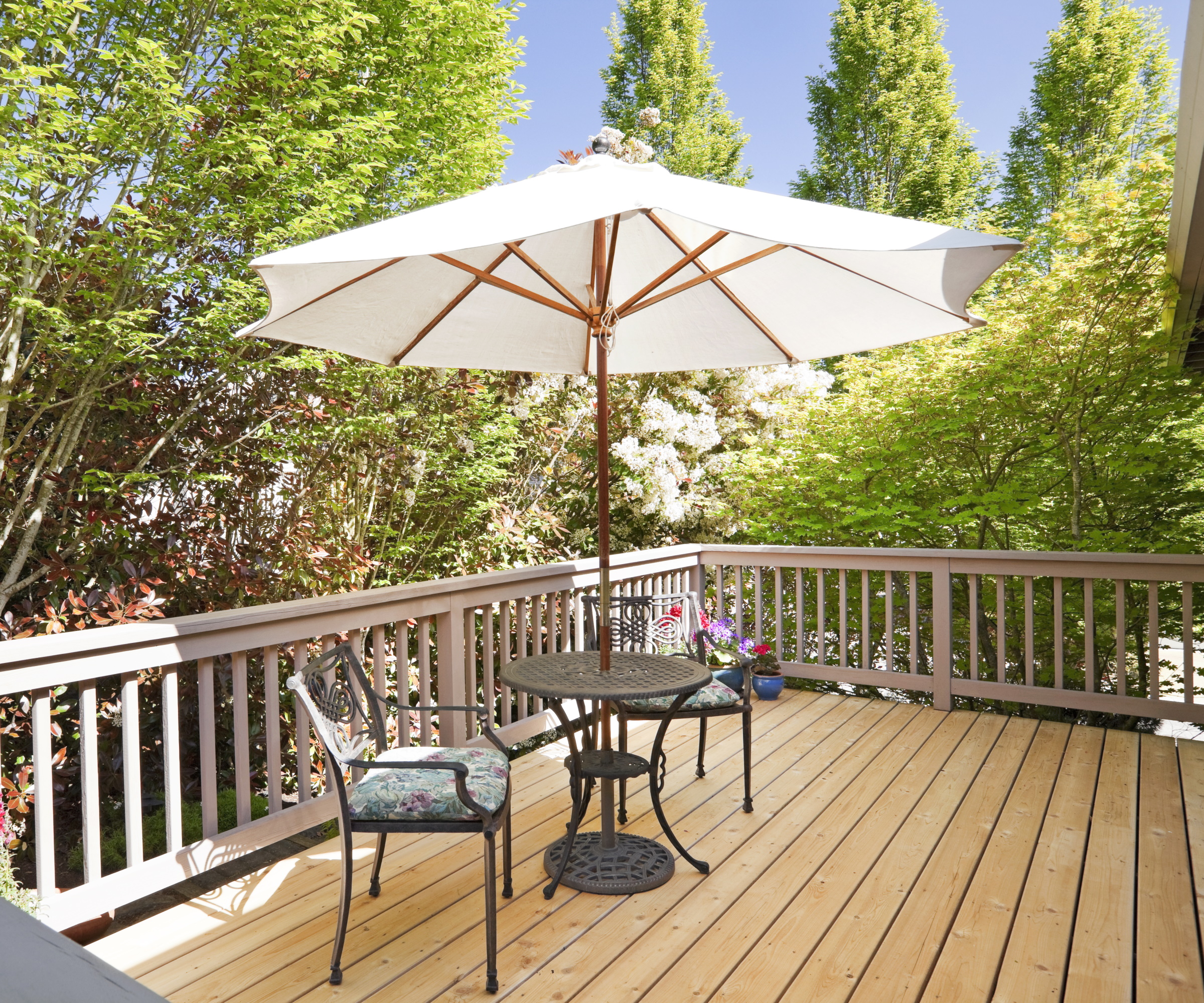
Unlike east-facing balconies that have plenty of shade during the summer afternoons, west-facing balconies will struggle to get natural shade at the hottest point of the day. That's why introducing some garden shade can be wise and allow you to still enjoy your outdoor space even in sweltering temperatures.
If you have a larger balcony, you might consider installing a pergola. A pergola like this one from Amazon has adjustable slats that can allow sunlight in and cast shade as you please. It's the perfect way to build an outdoor living room for a cool and comfortable escape.
However, if you're working with a smaller balcony, you might want to use these patio umbrellas from Walmart that don't take up too much space but are still effective at creating shade.
The key is to have shade that can be created and taken away as the sun moves throughout the day. Having balcony shade in some form will also help give your plants an escape from direct sunlight, helping to keep them hydrated for longer and not be affected by sun damage. Just be wary that permanent shade can leave your plants suffering from a lack of light, especially during the darker mornings before the sun has come around to the west.
3. Grow Mediterranean herbs
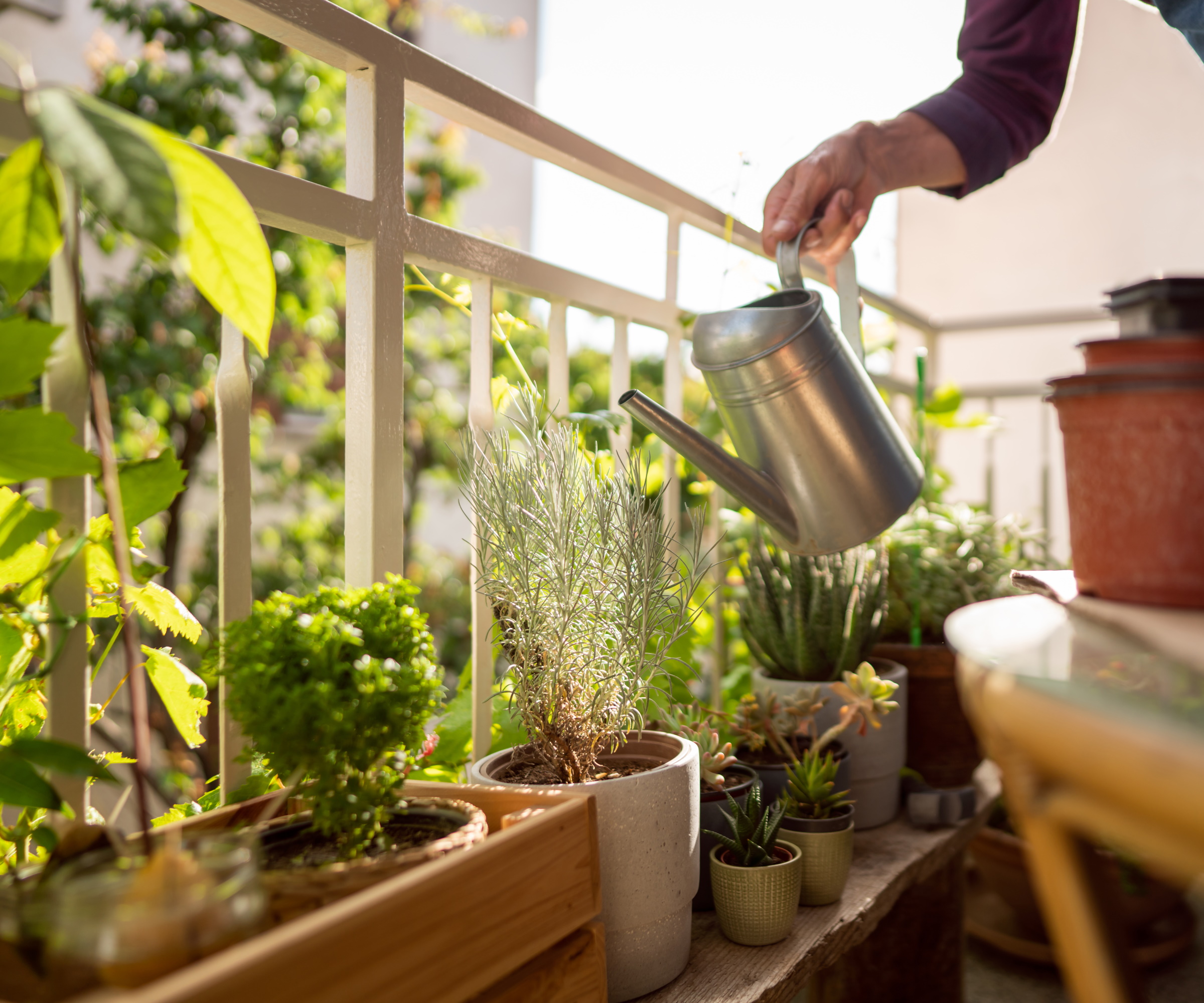
If you're a keen kitchen gardener and love to grow herbs, having a west-facing balcony can work in your favor. It's easy to create a balcony herb garden because herbs grow well in pots, and there are a range of sun-loving herbs that will thrive in the sunny afternoon on a west-facing balcony.
'Mediterranean herbs such as rosemary, lavender and basil should grow well here,' notes Annette. These are all herbs that require lots of sun to grow happily, but you need to ensure they also get plenty of water. An added bonus is that growing these sun-loving herbs will create a fragrant garden on your balcony, uplifting your urban outdoor space.
In fact, there are lots of ideas you can take from Mediterranean gardens and Mediterranean patios to replicate on your west-facing balcony. Just be aware that unlike gardening on a south-facing balcony where there is sun exposure for most of the day, the plants you choose for a west-facing position will need to be able to cope with a shorter period of shade and indirect light.
Try getting creative to make your herbs a feature on your balcony - such as making a herb planter or using this herb raised bed from Amazon to put your herbs on display.
FAQs
Do you need to overwinter plants on a west-facing balcony?
Like north-facing balconies, west-facing balconies are susceptible to experiencing colder winds during fall and winter. It's a wise idea to protect any plants grown on a west-facing balcony from frost and dropping temperatures. This can be done in a number of ways, including wrapping pots to keep roots warm and even brining potted plants inside. The best thing to do is research the lowest temperatures your specific plants can handle and put precautions in place accordingly to protect them.
Cool mornings, extreme afternoon heat and longer period of daylight are all things that come with gardening on a west-facing balcony. It can have it's challenges, but the mixture of sun and shade present a wide range of opportunities for growing in this urban setting.
If you only have a small balcony space and are trying to find ways to maximise it, read our expert guide to vertical gardening and using vertical space for growing.







